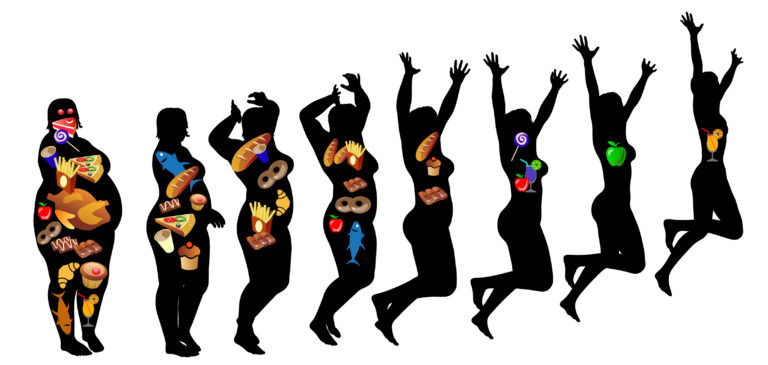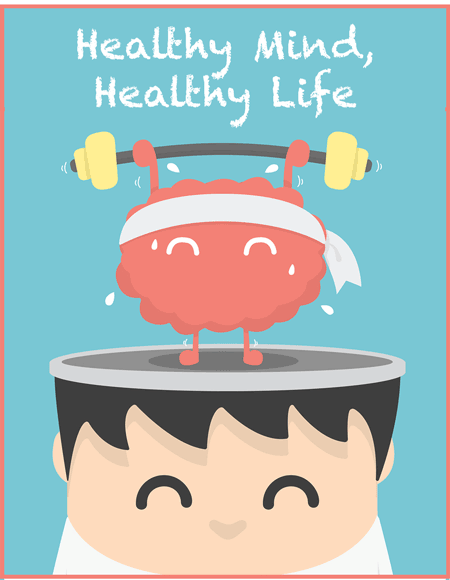Are There Any Medical Reasons Why I Can’t Lose Weight?
Houston Endocrine Center2022-10-14T16:04:03+00:00
Source: VectorStock
You’ve tried everything to lose weight, from over-exercising to starving yourself, yet nothing seems to work. I know it can be discouraging, but the root problem could be something medical you need to treat.
Are there any medical reasons why I cannot lose weight? That is what a lot of people ask. The answer is yes!
If you’re concerned about your weight, the first place to turn is to a medical professional. There are a number of reasons that a person may struggle to lose weight, even when they’re following a balanced diet and exercise routine.
Not all of us can achieve our desired body weight. This could be due to a number of reasons, including illnesses, medications, or even genetics. However, there are some medical conditions that prevent the body from losing weight.
Weight Loss

Source: VectorStock
Weight loss is a complex process that involves many factors. It’s not just about what you eat and how much exercise you do; there are many other factors that affect weight loss.
Losing weight quickly is not advisable as it can be unhealthy and unsafe. Losing weight too quickly will make it harder to keep the weight off as well. It’s important to lose weight gradually and safely in order to prevent any health problems from developing as a result of rapid weight loss.
Why Is Losing Weight Important?
Losing weight is important for your overall health. It’s not just about fitting into the clothes you want to wear. Losing weight can help improve your energy level, reduce your risk of developing certain diseases, and make you feel better about yourself.
Losing weight is a challenge for many people. It takes perseverance, dedication, and hard work. But if you’re committed to losing weight and keeping it off, it will be worth all the effort involved.

Source: VectorStock
1. Reduce Risk Factors For Certain Diseases
For example, being overweight increases your risk for high blood pressure and high cholesterol levels — both risk factors for heart disease and stroke — according to the Mayo Clinic. Losing just 5 percent of your body weight can result in lower blood pressure and improved cholesterol levels. Achieving a healthy body mass index (BMI) — which ranges from 18.5 to 24 — can also reduce your risk of developing type 2 diabetes by up to 80 percent compared with those who are overweight or obese.
2. Healthy Weight Loss
One of the biggest reasons for losing weight is your overall health. Being overweight or obese increases your risk of developing serious conditions such as heart disease, diabetes, and high blood pressure. A healthy diet and exercise plan can help you reach a lower BMI (body mass index) and reduce those risks.
3. Improved Moods
Being overweight can cause low self-esteem and depression because of poor body image and other issues related to weight gain. Losing weight through healthy eating habits and exercise has been shown to increase feelings of self-worth, confidence, and happiness in people who have struggled with their weight over time.
4. Increased Energy Levels
Being overweight often results in low energy levels due to carrying around extra fat tissue all day long — especially if you sit at a desk all day long like most people do these days! Shedding pounds by eating right and exercising regularly helps increase energy levels naturally so that you feel more energized throughout the day.
5. Improved Self-Esteem
One common reason people lose weight is to look better in their clothes and feel better about themselves. But even if you don’t lose enough weight to see noticeable changes in how you look, losing weight can still improve your self-esteem because you’ll feel healthier and stronger physically and mentally.
Weight Loss Struggle

Source: VectorStock
You are not alone if you’ve tried to lose weight and failed. Weight loss is one of the most common New Year’s resolutions, with about half of all Americans aiming to shed pounds in January, according to a Gallup poll.
If you are among that group and have been trying for months (or years) with little success, it might be time to see your doctor. If someone has been struggling for a long time, there could be medical reasons why they can’t lose weight. It’s important to rule out anything serious before deciding that weight loss is impossible or too hard to achieve.
Medical Reasons For Failed Weight Loss Attempts
Here are some medical reasons why you may not be able to lose weight:
1. Hypothyroidism

Source: VectorStock
If you have hypothyroidism, you may have noticed your weight gain and inability to lose weight. This is because hypothyroidism can cause insulin resistance, which will cause you to store more fat. Hypothyroidism is a condition in which the thyroid gland does not produce enough hormones. It can be caused by Hashimoto’s thyroiditis (autoimmune destruction of thyroid tissue) or iatrogenic causes (caused by medications or radiation treatments).
2. PCOS

Source: VectorStock
Polycystic ovary syndrome is another condition that causes insulin resistance and fat storage. Women with PCOS tend to be overweight or obese and have multiple cysts on their ovaries that are not harmful but cause symptoms such as menstrual irregularities and infertility. Some women with PCOS also have high levels of testosterone due to excess production by the adrenal glands in response to stressors like dieting or excessive exercise.
3. Cushing Syndrome

Source: Cushing’s Disease News
Cushing syndrome is a condition caused by excessive glucocorticoid production from the adrenal glands in response to stressors like dieting or excessive exercise. While this can cause weight gain, it also causes muscle wasting, so people with Cushing syndrome tend to appear thinner than they actually are.
4. Insulin Resistance (High Blood Sugar)

Source: VectorStock
Insulin regulates blood sugar levels by storing excess energy as fat in the body and releasing it when needed by muscles during fasting periods or exercise. When you eat too much sugar, your pancreas releases insulin to regulate blood sugar levels. Still, if you have insulin resistance, this process becomes faulty, and your body can’t use the energy from food properly.
Eating too many carbohydrates (bread, pasta, rice) causes a spike in blood sugar levels which then triggers an increase in insulin production by the pancreas. The higher insulin levels make it difficult for our bodies to burn fat for energy because they are busy transporting glucose into cells throughout our body instead of burning fat reserves for fuel.
5. Leptin Resistance

Source: VectorStock
Leptin is a hormone that regulates appetite and metabolism by telling the brain when it’s full, so you’ll stop eating sooner than later. Leptin resistance occurs when your body can no longer recognize leptin as a signal for hunger and satiety because leptin receptors in your brain have become less sensitive to the hormone due to chronic stressors like sleep deprivation and dieting, overeating, or even genetics (it runs in families). When this happens, your brain thinks it needs more food even though it doesn’t need more.
6. Iron Deficiency Or Excess Iron Stores (Hemochromatosis)

Source: VectorStock
Iron is an essential mineral that plays a role in energy production, oxygen transport, and the synthesis of heme proteins. Unfortunately, when there is too much iron in the body, it can lead to organ damage and even death. Too much iron can also cause anemia.
In addition to organ damage and anemia, excess iron stores can cause insulin resistance, which means that the body produces too much insulin relative to the amount of sugar in the blood. This leads to high blood sugar levels and an increased risk for diabetes.
Try Medical Weight Loss
Medical weight loss is a safe and effective way to lose weight. It can help you lose more weight than dieting alone, and it’s a good choice for people who have been unsuccessful at losing weight on their own.
If you have tried unsuccessfully to lose weight, it may be time to consider medical weight loss. This is not a quick fix, and it will take time and hard work, but it can help you reach your goal of losing a significant amount of weight.

Source: VectorStock
Reasons To Consider Medical Weight Loss
Medical weight loss programs provide people with the guidance and support they need to make lasting changes in their eating habits and exercise regimens. This type of program also provides access to the latest technologies that can help patients reach their goals.
Here are some reasons why you may want to consider medical weight loss:
- You’ve been trying to lose weight on your own but haven’t been able to reach your target weight
- You have been diagnosed with a condition that makes it difficult for you to lose weight on your own (like diabetes or heart disease)
- You have tried other types of diet programs but weren’t able to stick with them long enough for them to work.
Conclusion
When it comes to weight loss, the old expression: “if you want something done right, do it yourself” doesn’t quite apply.
If you have been struggling to lose weight, it can be devastating to learn that some of your insecurities about not being able to get rid of that extra fat might just have a legitimate reason. A lot of times, the reasons can be heartbreaking and frustrating. In fact, there are a number of medical conditions that can hinder the process.
In the healthy weight loss community, there is a notion that some people are “metabolically damaged”. This means that their metabolism is slow to the point where it may be impossible to lose weight at all.
To find your reason for not losing weight easily, book your appointment with us today!






